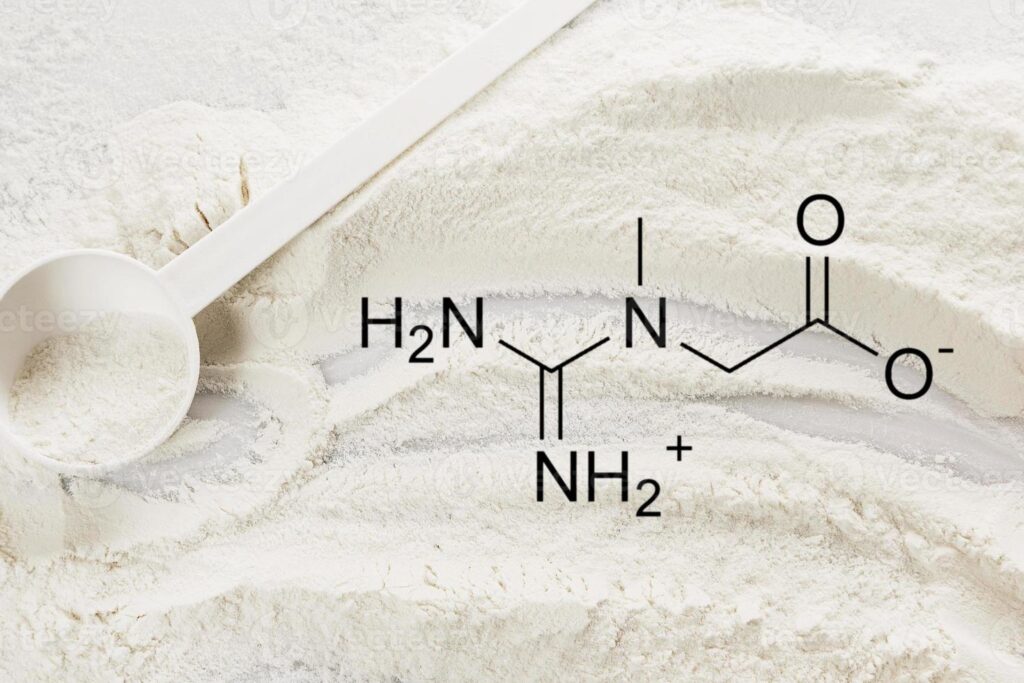If you’ve ever wandered through the supplement aisle or browsed fitness content online, you’ve probably heard of creatine. For years, it’s been a favorite among athletes and bodybuilders, but what many people don’t realize is that creatine is one of the most well-researched, effective, and safe supplements for anyone, especially adults over 40 who want to stay strong, active and healthy as they age.
At Skyterra Wellness Retreat, we’re passionate about helping guests find simple, evidence-based strategies to maintain their energy, mobility and muscle as they move through midlife and beyond. Creatine is one of those strategies. Here’s what you need to know.
Why we start losing muscle after 40
After age 40, both men and women begin to lose muscle mass naturally, a process known as sarcopenia. Several factors contribute to this:
- Decreased activity levels: We tend to move less as we age, especially at higher intensities.
- Hormonal changes: Key anabolic (muscle-building) hormones such as testosterone, estrogen, and growth hormone start to decline.
- Reduced protein synthesis: Our bodies become less efficient at using dietary protein to build and repair muscle.
Over time, these changes can lead to decreased strength, slower metabolism, and less stability: all of which can impact how we feel and function each day.
That’s where creatine can help.
What creatine does in the body
Creatine is a naturally occurring compound found in small amounts in foods like red meat and fish, and it’s also produced by our bodies. When you supplement with creatine, it’s converted into phosphocreatine, a molecule that stores high-energy phosphate groups.
During exercise, your body uses ATP (adenosine triphosphate) for energy. When ATP is broken down, it loses one phosphate molecule and becomes ADP (and no longer usable for energy.) Here’s where creatine shines: it donates one of its phosphate groups to ADP, recycling it back into ATP so your muscles can keep working.
In simple terms:
Creatine helps your muscles produce more energy during high-intensity or strength-based exercise.
This means you might get an extra rep during your lift, a stronger push during your walk uphill, or more stamina in your workout, all of which lead to greater strength and muscle preservation over time.
Why creatine matters for longevity
Research shows that creatine supplementation can increase strength and power by 8 to 14% on average. But the benefits go far beyond the gym.
For middle-aged and older adults, maintaining muscle is one of the most important factors for long-term health. Muscle supports balance, metabolism, bone density, and even cognitive health. By making it easier to train effectively and recover well, creatine supports the kind of movement and strength that keep you independent and active as you age.
Emerging studies also suggest that creatine may support brain health, improving cognitive processing and recall, especially under stress or sleep deprivation. Researchers are even studying creatine’s potential benefits for neurodegenerative diseases.
Common myths about creatine
Let’s set the record straight on a few common misconceptions:
Myth 1: Creatine is only for men or athletes.
Not true. Creatine benefits everyone, including women. In fact, menopausal women may find it particularly helpful, as hormonal fluctuations can impact muscle preservation and strength.
Myth 2: You need to “load” creatine or cycle on and off.
You don’t have to follow a loading phase. Taking a consistent daily dose (usually 3–5 grams) will naturally saturate your muscles within about four weeks. Creatine is meant to be taken daily and continuously.
Myth 3: It causes bloating or weight gain.
Creatine can cause a small increase in body weight because it helps your muscles store more water, not fat. This water retention actually helps your muscles stay hydrated and perform better (and gives them a more defined look!). Just make sure you’re drinking enough water throughout the day.
Myth 4: Creatine is unsafe.
Creatine is one of the most studied supplements in the world, with decades of research supporting its safety for healthy adults. If you have specific medical concerns, it’s always best to talk to your doctor before adding any supplement.
How to get started:
If you’re thinking about adding creatine to your routine, here are some steps to take:
- Talk to your doctor about whether creatine is right for you and what dose they recommend (most research supports 3–5 grams daily).
- Pair it with strength training. Creatine works best when combined with regular resistance exercise — that’s where you’ll see the biggest impact on muscle mass and energy.
- Stay hydrated and consistent. Like any wellness habit, consistency matters more than perfection.
The bottom line
Creatine isn’t just for athletes, it’s for anyone who wants to age with strength, energy and confidence. It’s one of the simplest, safest and most effective supplements to support longevity and vitality.
At Skyterra Wellness Retreat, we believe in empowering you with tools that help you live your healthiest life. To learn more about how to preserve muscle and move with strength at every age, listen to our Inspired Intentions podcast episode on creatine here or explore our website for more science-backed insights.




